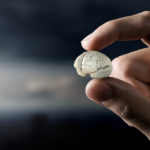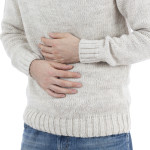By Bonnie Jenkins, Advanced Natural Medicine
I’m so excited about a new natural antacid I recently discovered.
For years, I’ve had what my mother called “a touchy stomach.” And for years I’ve seen doctor after doctor – to no avail. None of them could find anything wrong, even though there were days when I was doubled up in pain. But a few months ago, I finally found a gastroenterologist who was able to pinpoint the problem –irritable bowel syndrome (IBS).
IBS (also known as a spastic colon) is a common chronic health disorder affecting more people than asthma, diabetes, and depression combined. Even though about 20 percent of the world’s population suffers from IBS, it’s a condition that doesn’t have a clear-cut cause, which is why it’s so difficult to diagnose. Medical tests don’t find any physical abnormalities, so for years doctors thought the condition was solely psychological. But the symptoms are real enough – intermittent abdominal cramps with either constipation or diarrhea. Stress makes it worse, as does a low-fiber diet. And it often goes hand-in-hand with lactose intolerance.
Unfortunately, there’s no magic bullet to cure IBS. Since stress seems to be the major trigger involved in IBS symptoms, many doctors prescribe antidepressants like Zoloft or Paxil – drugs which are riddled with adverse and often frightening side effects. The new medications specifically designed to treat IBS haven’t proven much better. Last year, Lotronex (used to treat diarrhea-predominant IBS) was pulled from the market by its maker Glaxco Wellcome after the FDA voiced concerns about side effects, including three deaths related to the drug. And Zelnorm, the new medication used to treat constipation-related IBS, can cause diarrhea, headaches, abdominal pain, nausea, dizziness and flu-like symptoms. But, what really worries me is that preliminary evidence links the drug to an increase in abdominal surgery.
My doctor’s drug of choice was Levsin, an antispasmodic drug used to treat various stomach and intestinal problems. But it can also cause bloating, blurred vision, confusion, insomnia, heart palpitations and a rapid heartbeat, headaches, lack of coordination and vomiting.
On the Right Tract
Needless to say, the prescription never got filled – and I set out to find a safe, natural solution. I tried everything – peppermint, ginger, licorice, even charcoal. They all helped to some degree, but except for the dietary changes I made (a natural foods diet with lots more fiber), everything else was just a temporary stopgap. Then a friend told me about probiotics, live bacteria that help modulate gut microflora and improve the intestinal microbial balance.
MD Exposes the Hidden Danger to Your Eyes

When your eyesight starts to fail, it's a real problem. Suddenly you can't go to the grocery store... you can't get to the doctor if you have an emergency... you can't meet your friends for dinner…
Your "regular" doctor doesn't have time to keep up with the latest research. And the same goes for eye doctors. They go to school to learn how to fit you for glasses and contacts, but have no way of preventing the damage and loss of eyesight that threatens your freedom and independence.
Let me show you something that explains a LOT about how your eyes work.
In my FREE Special Report, I'll show you a HUGE, untapped resource for your eyes that safely and naturally restores clear, effortless eyesight.
Click here to get started...
The gastrointestinal tract is by far the richest environment for bacteria in our bodies. At least 400 species of bacteria typically live there and help normalize and maintain healthy gastrointestinal flora, which can minimize diarrhea, bloating, gas and painful abdominal cramps. Without these beneficial bacteria, we would have far more trouble with digestion, food poisoning and infectious diseases.
But sometimes the balance between good and bad bacteria is thrown out of whack – and if the imbalance is chronic, IBS can develop. In fact, a recent study by researchers at Cedars-Sinai Medical Center found that 78 percent of IBS patients have a bacterial overgrowth in the small intestines, which may account for earlier research showing that probiotics can dramatically improve symptoms. . Probiotics favorably alter the intestinal microflora balance, inhibit the growth of harmful bacteria, promote good digestion, boost immune function and increase resistance to infection. While probiotics are effective when your gut is under assault from antibiotics, they are particularly helpful for those of us with IBS.
In one clinical trial, Polish researchers found that probiotics relieved IBS symptoms in 95 percent of patients. Forty patients with IBS participated in the study, which lasted four weeks. Half received a probiotic supplement and half were given a placebo. By the end of the trial, all of the subjects in the probiotic group experienced complete relief from abdominal cramping compared to only 11 in the placebo group. The folks taking the probiotics also reported relief from constipation.
Another trial by the Mayo Clinic randomly assigned 25 IBS sufferers to receive either a probiotic or a placebo twice a day for eight weeks. By the end of the study, those taking the probiotics had a significant reduction in abdominal bloating – another primary (and uncomfortable) symptom of the condition. Lab tests have also found that probiotic supplementation improves colonic motility and enhances the barrier function of the cells that line the intestines.
Better Bugs
Two specific types of bacteria, lactobacilli and bifidobacteria, maintain a healthy balance of intestinal flora by producing organic compounds — such as lactic acid, hydrogen peroxide and acetic acid —that increase the acidity of the intestine and inhibit the reproduction of many harmful bacteria. Acidophilus and bifidobacteria are also necessary for your body to manufacture B vitamins, including niacin, folic acid, biotin, and vitamin B6.
Research shows that other Lactobacillus species may be beneficial as well. For example, L. rhamnosus and L. plantarum are involved in the production of several “gut nutrients,” such as short-chain fatty acids, and the amino acids, arginine, cysteine and glutamine. Another probiotic, Saccharomyces boulardii, has prevented diarrhea in several human trials. And some forms of probiotic bacteria produce substances called bacteriocins, which act as natural antibiotics to kill undesirable microorganisms.
The World's Quickest Solution for Ending Prostate and Urinary Misery
This has recently been revealed to be one of the only real breakthroughs in prostate health.
The seeds of a strange fruit (sometimes called "Chinese Apples") hold powerful phytonutrients that are a revolution in prostate health.
In fact, UCLA and Veterans Administration research have now proved this to be true.
Not only that, but it may be the worlds quickest solution for ending prostate misery.
Simply stated, these phytonutrients represent a huge step beyond beta sitosterol, saw palmetto, and other phytosterols alone.
Simply click HERE if you want to have fast prostate relief...restful, uninterrupted sleep...no more constant "urges to go"...enhanced virility...and optimal prostate support for life.
But, since probiotics aren’t normally able to establish a permanent home in the human gut, you need to replenish them daily in order to see a consistent health benefit. The problem is that many supplements that boast live cultures don’t actually contain the levels of live bacteria touted on their labels. A good rule of thumb is to look for a refrigerated probiotic supplement that contains the live cells of both Lactobacillus acidopholis and Bifidobacterium bifidus. And if you can find a supplement that contains additional types of bacteria, it’s even better.
One Last Thing …
If you suffer from IBS, you also might want to consider taking some of these natural antacids as well: L-glutamine, the major fuel of the intestines. While conventional science hasn’t really investigated L-Glutamine’s beneficial role in IBS, there are numerous anecdotal reports of its effectiveness – which makes sense since L-glutamine heals intestinal cells and maintains the villi (the absorption surfaces of the gut).
According to James and Phyllis Balch, authors of Prescription for Nutritional Healing, if you have IBS, you should take 500 mg. of L-Glutamine twice a day on an empty stomach. For better absorption, take it with 50 mg. of vitamin B-6 and 100 mg. of vitamin C.
This Just In …
Want to lower your cancer risk? Get a good night’s sleep! A new study shows that how well you sleep may determine how well your body fights cancer – and may help explain how mental well-being plays into cancer recovery and progression.
Two Stanford psychiatrists have found that sleep problems alter the balance of at least two hormones that influence cancer cells. The first, cortisol, helps regulate immune system activity, including the release of certain “natural killer” cells that help the body battle cancer. The second is melatonin, which may have antioxidant properties that help prevent damage to cells that can lead to cancer. But if you don’t get enough sleep or wake up often during the night, it’s likely you don’t have sufficient levels of these hormones to guard against cancer. And if you have cancer, low cortisol and melatonin levels may speed its progression.
But getting a good night’s sleep is often easier said than done. A few months ago, I told you how melatonin supplements can help you get the sleep you need (Catching the zzzz’s, 6/23). Well, now it seems that taking melatonin supplements may also help prevent cancer. According to a study published in Cancer Letters, supplementing with 50 mg. of melatonin reduced the number of cancer cells in mice. The researchers speculated that the hormone effectively caused the cells to commit suicide without harming healthy cells.
Here’s the bottom line: when it comes to balancing these two cancer-fighting hormones, if you snooze, you definitely won’t lose.
References:
Bazzocchi G, et al. “Intestinal microflora and oral bacteriotherapy in irritable bowel syndrome.” Dig Liver Dis 2002;34:S48-S53.
El-Missiry MA, et al. “Influence of melatonin on proliferation and antioxidant system in Ehrlich ascites carcinoma cells.” Cancer Letters. 2000;151:119-125.
Kim HJ, et al. “A randomized controlled trial of a probiotic, VSL#3, on gut transit and symptoms in diarrhoea-predominant irritable bowel syndrome.” Aliment Pharmacology and Therapy. 2003;17:895-904.
Niedzielin K, et al. “A controlled, double-blind, randomized study on the efficacy of Lactobacillus plantarum 299V in patients with irritable bowel syndrome.” European Journal of Gastroenterology and Hepatology. 2001;13:1143-1147.
Resta-Lenert S, et al. “Live probiotics protect intestinal epithelial cells from the effects of infection with enteroinvasive Escherichia coli (EIEC).” Gut. 2003;52:988-997.
Sephton, S, et al. “Circadian disruption in cancer: a neuroendocrine-immune pathway from stress to disease?” Brain, Behavior and Immunity. 2003;17:321-328.






